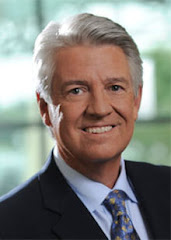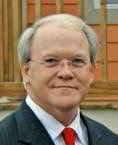
Yesterday, Baptist pastor
Darrell Gilyard pled guilty to molesting a 15-year-old girl and sending lewd text messages to another. Under the Florida plea agreement, he faces
three years in prison.
Where are the voices of Paige Patterson and Jerry Vines
now?
These two former Southern Baptist presidents mentored Gilyard for many years of his star-studded career. They continued to promote Gilyard even after numerous abuse allegations had come to light.
It should not be forgotten that literally dozens of young women, college girls, and teens were wounded by pastor Gilyard while high-level Southern Baptist leaders stayed mired in their own complicity.
At least
44 people reported abuse by Gilyard during his career in Baptist churches. That was my count nine months ago, and those are just the ones we know about from published articles. There are likely many more who may have been so traumatized they stayed silent. And let’s not forget that the spouses, future spouses, and families of those abused by clergy are also people who suffer.
According to 1991
Dallas Morning News reports, it was over 20 years ago when female students at Criswell College first started trying to tell Paige Patterson about Darrell Gilyard. Even though Patterson was president of Criswell at that time (and you might have thought he would have felt some responsibility toward the students), Patterson wouldn’t listen to them, they said.
A couple other ministers also tried to report Gilyard to Patterson, as did
counselor Don Simpkins. With Patterson in the room, Simpkins listened while six to eight women reported “everything from being raped to being sexually assaulted to sexual affairs that went on with Mr. Gilyard.”
But neither Patterson nor any other Baptist official took action to stop Gilyard. He was always able to move on. In Texas and Oklahoma, Gilyard resigned from 4 churches in 4 years because of sexual abuse allegations.
About the time when the Dallas Morning News started reporting on all the allegations and making them public was when
Paige Patterson finally withdrew support from Gilyard. But what did he actually do? Reportedly, Patterson allowed Gilyard to confess to “
adulterous relationships,” and Gilyard moved on. (Do I need to point out that “adulterous relationships” aren’t the same as “sexual assaults”? That’s painfully obvious to me, but it doesn’t appear that Patterson made the distinction.).
Gilyard moved to Florida, where former Southern Baptist president Jerry Vines “
agreed to forgive” him for his out-of-state troubles. Reportedly, Vines gave additional credence to Gilyard by
speaking at Gilyard’s church. It worked out well for Gilyard; his career prospered. But it didn’t work out well for others.
Jacksonville’s
Shiloh Metropolitan Baptist Church settled the lawsuit of a woman who claimed pastor Darrell Gilyard had sexually assaulted her. Another of Gilyard’s Florida churches settled an earlier
“sexual misconduct” claim. So actually, counting the two women who brought these Florida lawsuits, we’re now up to 46 known publicly-reported victims of Baptist pastor Darrell Gilyard.
You have to wonder how many it would take before Baptist leaders would take it seriously, don’t you? Would they
ever, if the media didn’t get involved?
Finally, Gilyard was brought up on charges for his crimes against two Florida teens. And even as those charges were pending, and despite all the many prior allegations, other Baptist churches, including at least one Southern Baptist church, still allowed Gilyard to preach.
Where were the voices of Vines and Patterson when
that happened?
It’s a sad saga, isn’t it?
Clergy predators are able to persist because others turn a blind eye. Gilyard persisted for over two decades.
Shortly after the criminal charges against Gilyard were filed, and after I dug up the old
Dallas Morning News articles,
SNAP wrote to the trustees of Southwestern Baptist Theological Seminary and asked that they suspend Patterson as seminary president and investigate the claims that Patterson had overlooked past abuse reports involving Gilyard. (See the video of Patterson’s response in this
WFAA-TV link.)
In significant part, our letter said this:
As reported in the News, the accounts indicate that Patterson demonstrated a profound failure of moral judgment, a refusal to protect Criswell students who were under his charge, and a failure to warn others at risk about a reported serial predator.
Surely an institution dedicated to the development of spiritual leaders should consider the sort of spiritual leadership exemplified by its own president who reportedly exhibited an extraordinarily blind-eyed response to clergy sex abuse. We ask you to demonstrate this institution’s commitment to treating clergy sex abuse and cover-ups seriously by suspending Paige Patterson, fully investigating, and publicly reporting your findings.
The words of our letter were appropriate then, and they’re even more appropriate now that Gilyard has been convicted.
If Southern Baptists are ever going to effectively address clergy sex abuse, they must begin to see that the problem is about more than “a few bad apples.” It’s about the way in which the barrel itself enables the rot.
That’s what we asked the trustees to do -- look at whether Patterson played a role in enabling the rot. That sort of accountability inquiry is the sort of thing that a responsible organization would do. It’s what an organization that truly cared about the safety of kids and congregants would do.
Why? Because when it takes two decades and at least 46 wounded people before a predatory preacher is stopped, there is something very wrong with the system. Either the institutional safeguards are non-existent or they have failed. And someone in a position of responsibility needs to look into it and to assess what went wrong.
It should not be forgotten that a great many people suffered grievous wounds in this dreadful saga.
What would Baptist leaders do differently to prevent so many from being so wounded in the future? What would Patterson and Vines do differently?
________________________
In the photo, Darrell Gilyard is on the left and Paige Patterson on the right.
 “It is generally agreed that the impact on survivors of sexual abuse by spiritual leaders is greater than for survivors of other forms of power abuse. Since part of coping with trauma is spiritual, sexual abuse by a spiritual leader further complicates the recovery process. . . .
“It is generally agreed that the impact on survivors of sexual abuse by spiritual leaders is greater than for survivors of other forms of power abuse. Since part of coping with trauma is spiritual, sexual abuse by a spiritual leader further complicates the recovery process. . . .



























